5 Ways to Honor the Lesser Known Gods
One of the frustrating aspects of our religion is that, when it comes down to it, we only have a smattering of tales about our gods. Sure, we have the Poetic and Prose Eddas that tell us stories about the main gods and goddesses, but there are so many gods and goddesses we know next to nothing about. Sure, we have names and stations in our myths and legends, but unless it’s one of the big gods or goddesses, we hear little about them. But what do you do when one of the lesser know deities call you? Or the lesser known gods attracts you? How do you go about honoring them?
Research the Lesser Known Gods / Goddesses
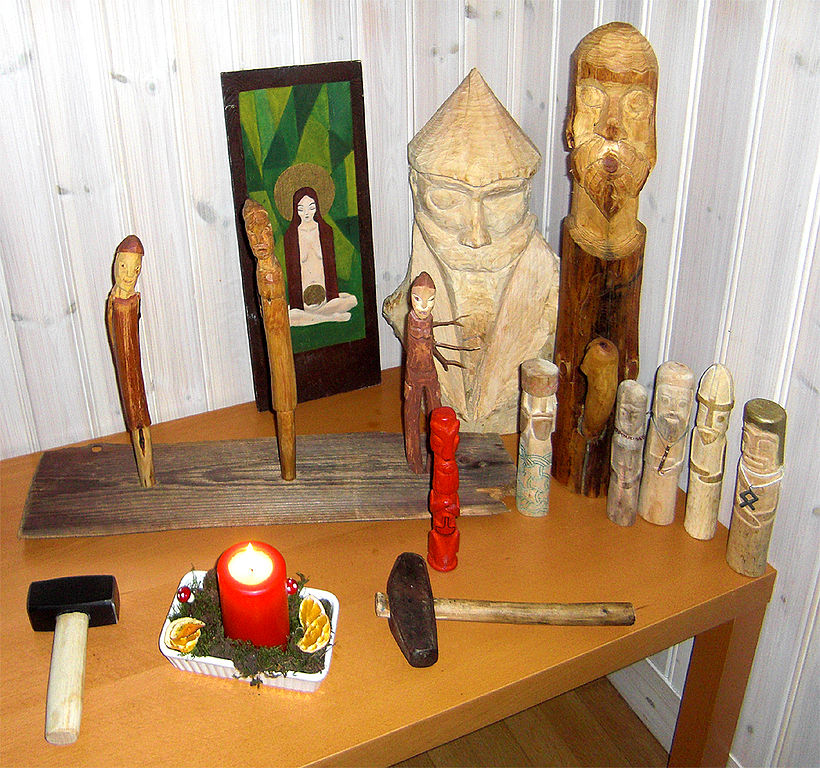 If one of the lesser known gods / goddesses calls to you, chances are you’re probably researching them. After all, if someone is knocking on your door, you probably want to know who they are before you let them in. No, not all gods, wights, and ancestors are good and beneficial to you. Some are downright harmful, which means you really don’t want them in your life. Some are beneficial and some are neutral. Entering into any relationship with a god requires due diligence on your part. Just because Odin shows up at your door doesn’t mean you should open your arms wide without some reservations. Odin can be fickle and dangerous to those he chooses. And this is a god we know quite a bit about by comparison to other gods in our pantheon; imagine knowing nothing about a god who shows up on your doorstep, literally or figuratively.
If one of the lesser known gods / goddesses calls to you, chances are you’re probably researching them. After all, if someone is knocking on your door, you probably want to know who they are before you let them in. No, not all gods, wights, and ancestors are good and beneficial to you. Some are downright harmful, which means you really don’t want them in your life. Some are beneficial and some are neutral. Entering into any relationship with a god requires due diligence on your part. Just because Odin shows up at your door doesn’t mean you should open your arms wide without some reservations. Odin can be fickle and dangerous to those he chooses. And this is a god we know quite a bit about by comparison to other gods in our pantheon; imagine knowing nothing about a god who shows up on your doorstep, literally or figuratively.
Start researching the god or goddess. You may have nothing more than a name, but you may be able to find out if they were worshiped or honored in a particular geographic area. That may be able to give you more insight into the god or goddess. Researching the god/goddess is an excellent way of honoring the deity. You are showing interest in them now that they’ve caught your attention.
Create a Shrine to Them on Your Altar
Once you know something about the god or goddess whom you wish to honor, the next step is to 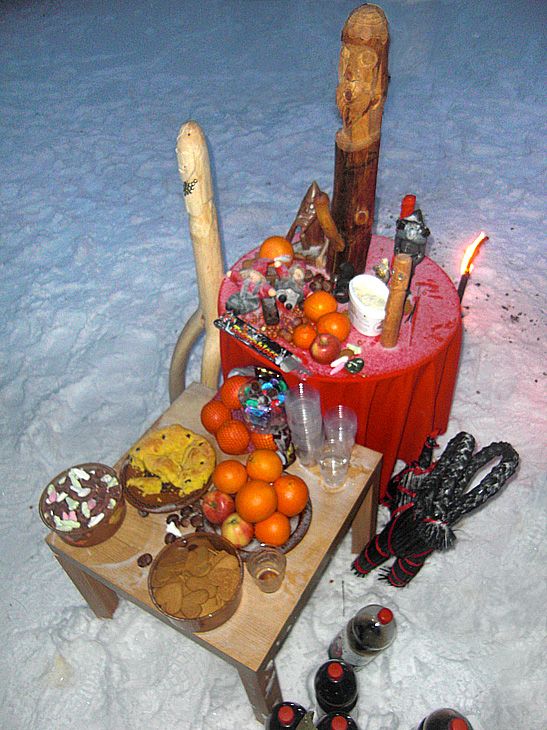 create a shrine on your altar, if you have one, or someplace in your home, if you don’t. It doesn’t have to be huge or ostentatious; something heartfelt that reminds you of the god or goddess works. For example, on my own altar, I have pine cones and images of dogs to Zisa. (Many think she is Tyr’s/Ziu’s consort.) By having something that honors the god or goddess on your altar, you can be reminded that this deity has a special place in your heart.
create a shrine on your altar, if you have one, or someplace in your home, if you don’t. It doesn’t have to be huge or ostentatious; something heartfelt that reminds you of the god or goddess works. For example, on my own altar, I have pine cones and images of dogs to Zisa. (Many think she is Tyr’s/Ziu’s consort.) By having something that honors the god or goddess on your altar, you can be reminded that this deity has a special place in your heart.
Include the Deity in your Offerings and Blots
Naturally, if you are honoring a lesser known god/goddess, you’ll want to include them in your offerings and blots. This is just good practice, in general, but also to establish a rapport with the deity. After all, if you’ve considered venerating them, it helps to offer them something they might like. Choose something within that god’s/goddess’s elements or something that is meaningful to you. Either way, I think it’s a good way to establish a rapport with a deity.
Pay Attention to UPGs
 There I go talking about Unverified Personal Gnosis again. Unverified Personal Gnosis or UPGs, the bane of most recons, can give you insight into the god or goddess that you can’t get anywhere else. While you can’t claim UPGs as being the absolute truth, they can give you a foundation for worshiping the god or goddess and provide the backbone of a relationship. Because they’re personal, you can’t expect your UPGs to be considered fact, but they are ideal for your relationship with a god.
There I go talking about Unverified Personal Gnosis again. Unverified Personal Gnosis or UPGs, the bane of most recons, can give you insight into the god or goddess that you can’t get anywhere else. While you can’t claim UPGs as being the absolute truth, they can give you a foundation for worshiping the god or goddess and provide the backbone of a relationship. Because they’re personal, you can’t expect your UPGs to be considered fact, but they are ideal for your relationship with a god.
Do Works in their Name
Are there good causes your god or goddess would want you to work in? One of the ways you can offer something to them is to donate your time and effort towards something that would further their causes. For a nature god, try offering work to clean up forests or natural areas near you. A battle deity? Try helping out veterans of the armed forces. A home or house deity? Donate goods or help cook meals for the poor. The gods and goddesses will appreciate your efforts.
These are just some ideas I’ve had. Chances are you have a few as well.



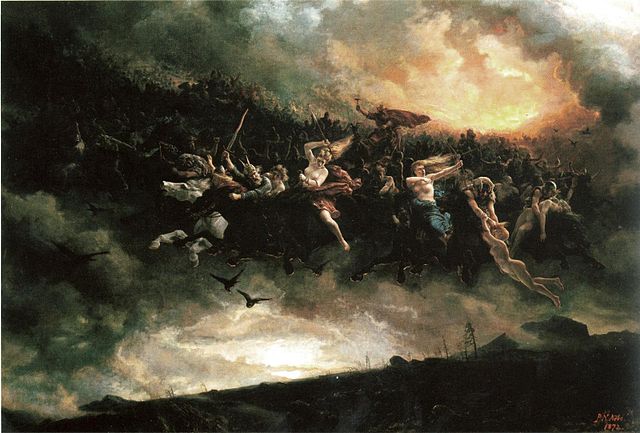 Moon and the Sun move across our sky, rather than the Earth revolving around the Sun and the Moon revolving around the Earth. That there really was a cow that licked the brine from Ymir and the gods, thus creating the first pantheons. That Odin along with his brothers slew Ymir and fashioned our Earth from Ymir’s bones. This is more fundamentalist than anything, and again, since you really believe that, nothing I’m going to tell you is going to make a difference.
Moon and the Sun move across our sky, rather than the Earth revolving around the Sun and the Moon revolving around the Earth. That there really was a cow that licked the brine from Ymir and the gods, thus creating the first pantheons. That Odin along with his brothers slew Ymir and fashioned our Earth from Ymir’s bones. This is more fundamentalist than anything, and again, since you really believe that, nothing I’m going to tell you is going to make a difference. Now, if you believe our gods manifest themselves in physical forms, that’s fine. I’m good with that. I believe that they can and do, but I also don’t believe that Asgard exists in our dimension. I tend to
Now, if you believe our gods manifest themselves in physical forms, that’s fine. I’m good with that. I believe that they can and do, but I also don’t believe that Asgard exists in our dimension. I tend to 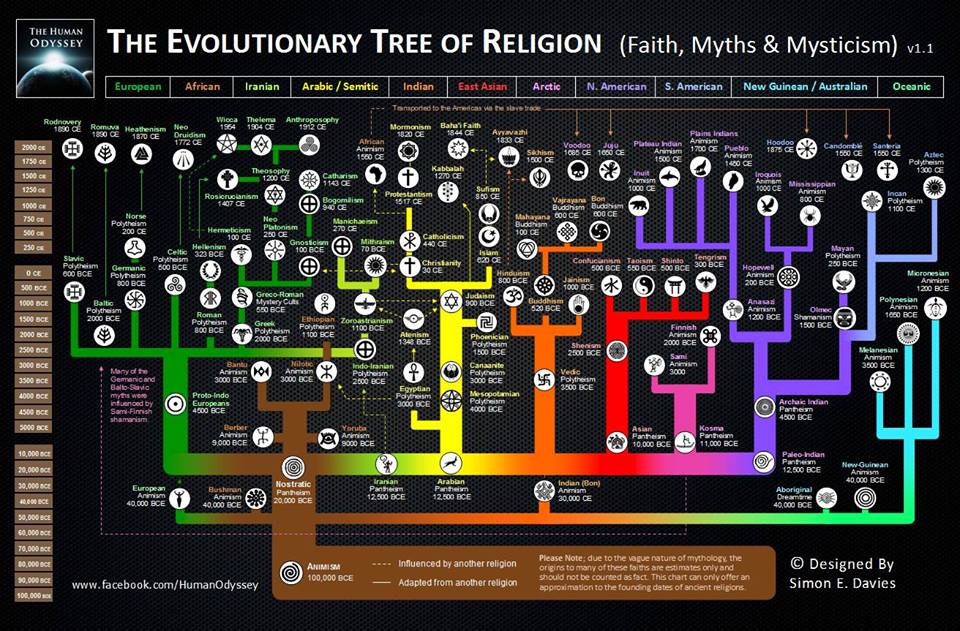
 Soft polytheism tends to look more at the concepts of the gods as archetypes. In it’s extreme form, it’s closer to atheism than a religion. I would not consider most soft polytheists in that group. Many are pantheists, which allows the worship of other gods, and it equates the universe with the gods. I sit more comfortably in the pantheistic version of Heathenry, because I believe that the universe and the gods are the same. My belief is our gods go by other names in other religions. I chose our gods not only because I am most comfortable with them, but because I have had interactions with them by those names.
Soft polytheism tends to look more at the concepts of the gods as archetypes. In it’s extreme form, it’s closer to atheism than a religion. I would not consider most soft polytheists in that group. Many are pantheists, which allows the worship of other gods, and it equates the universe with the gods. I sit more comfortably in the pantheistic version of Heathenry, because I believe that the universe and the gods are the same. My belief is our gods go by other names in other religions. I chose our gods not only because I am most comfortable with them, but because I have had interactions with them by those names.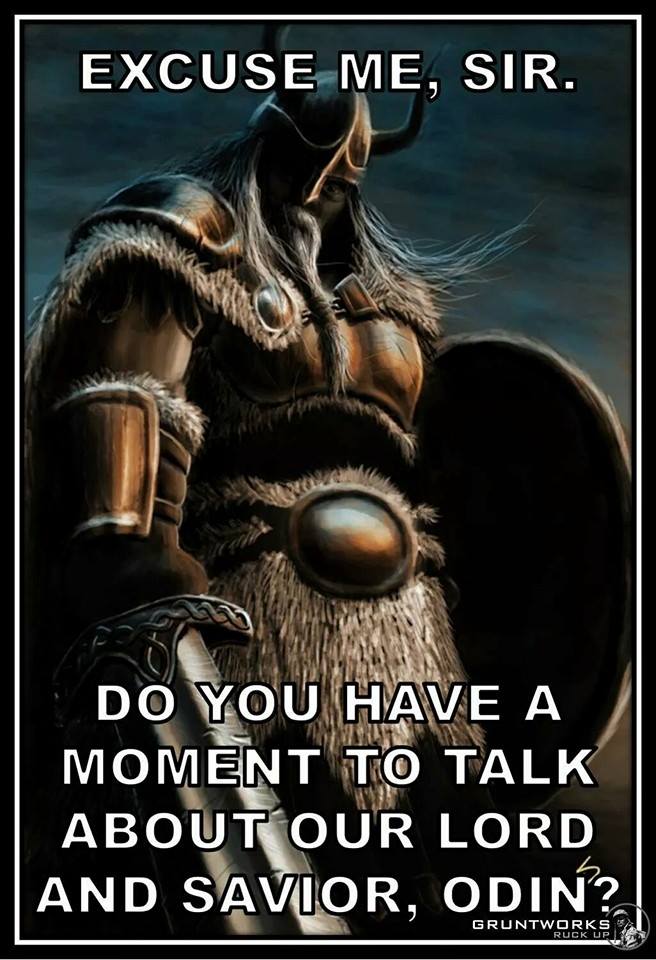
 On one of the myriad groups I occasionally hang out on, I noticed someone was asking if the Norse gods were the only gods. In this world of monotheistic gods, it’s not as strange of a question as pagans would like to think. Are the Northern deities the only gods out there? And if they aren’t, what makes them better than any other gods?
On one of the myriad groups I occasionally hang out on, I noticed someone was asking if the Norse gods were the only gods. In this world of monotheistic gods, it’s not as strange of a question as pagans would like to think. Are the Northern deities the only gods out there? And if they aren’t, what makes them better than any other gods?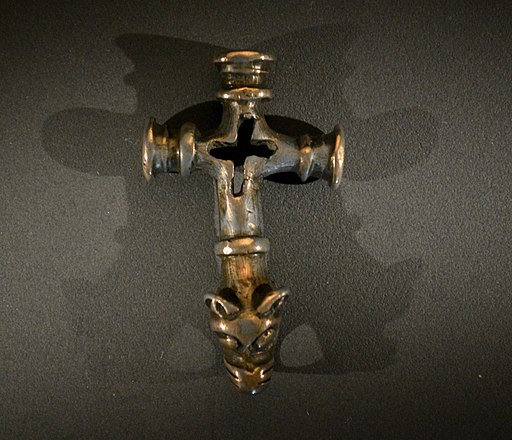 We know that the Icelandic peoples worshiped Jesus alongside the Norse gods, given the Icelandic Cross/Thor’s Hammer. It’s also suspected that the Vanir are a group of gods that got assimilated into the Northern pantheon sometime in the past, thus making the Aesir and Vanir to be two groups of gods that merged to give us our current pantheon.
We know that the Icelandic peoples worshiped Jesus alongside the Norse gods, given the Icelandic Cross/Thor’s Hammer. It’s also suspected that the Vanir are a group of gods that got assimilated into the Northern pantheon sometime in the past, thus making the Aesir and Vanir to be two groups of gods that merged to give us our current pantheon.
 pray for their god or gods to make things better when something bad happens. Or they pray to whatever wights and spirits in the hopes that things will improve. Prayer gives people a sense that they are doing something to change the situation. But, they’re not. Not really.
pray for their god or gods to make things better when something bad happens. Or they pray to whatever wights and spirits in the hopes that things will improve. Prayer gives people a sense that they are doing something to change the situation. But, they’re not. Not really. Now, before I get into my rant, let me first say that I have the utmost respect for the Native Americans. These people have been treated horribly–and are still being treated horribly–by the United States government. These people have, in many cases, been stripped of their culture, language, and religion, not to mention their freedom and their lives. Even into the 1950s and 1960s, children were being stolen from their parents, put in orphanages, and then sold to white people for a mere donation. I’ve known plenty of people with Native American ancestry and I respect them highly. What was done to their people is unconscionable.
Now, before I get into my rant, let me first say that I have the utmost respect for the Native Americans. These people have been treated horribly–and are still being treated horribly–by the United States government. These people have, in many cases, been stripped of their culture, language, and religion, not to mention their freedom and their lives. Even into the 1950s and 1960s, children were being stolen from their parents, put in orphanages, and then sold to white people for a mere donation. I’ve known plenty of people with Native American ancestry and I respect them highly. What was done to their people is unconscionable.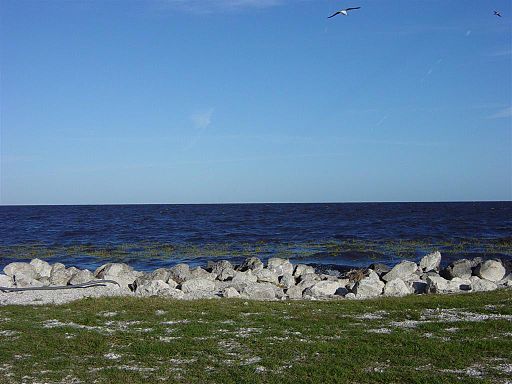 to control the lake’s waters. The lake, from what I understand, has a containment ring and
to control the lake’s waters. The lake, from what I understand, has a containment ring and  let me remind you all that
let me remind you all that  walk, I’d agree with you. It’s a good media promotion and one that will work given the nature of the situation. (Pardon the pun.) But prayer only goes so far, and
walk, I’d agree with you. It’s a good media promotion and one that will work given the nature of the situation. (Pardon the pun.) But prayer only goes so far, and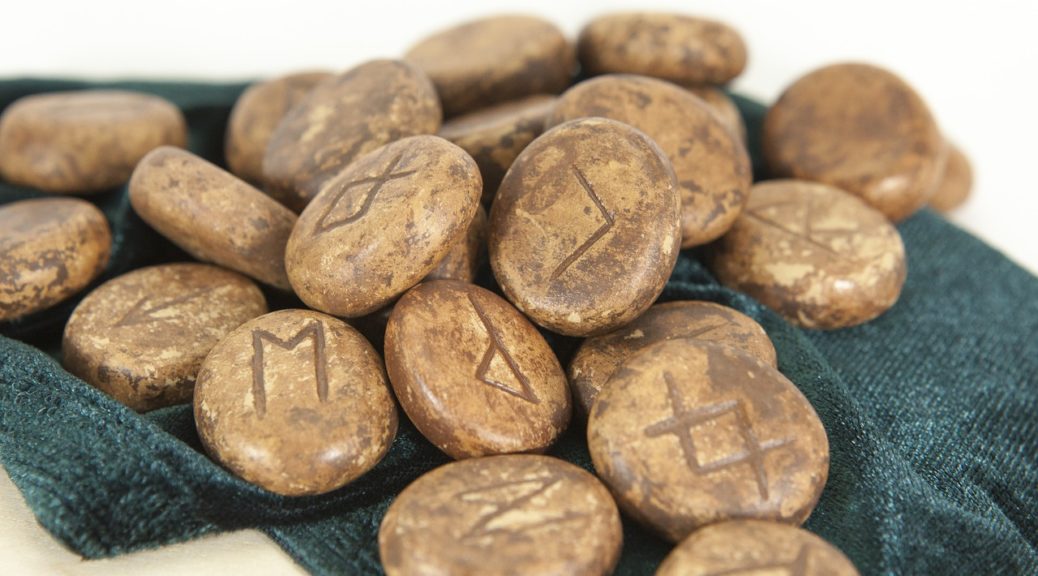
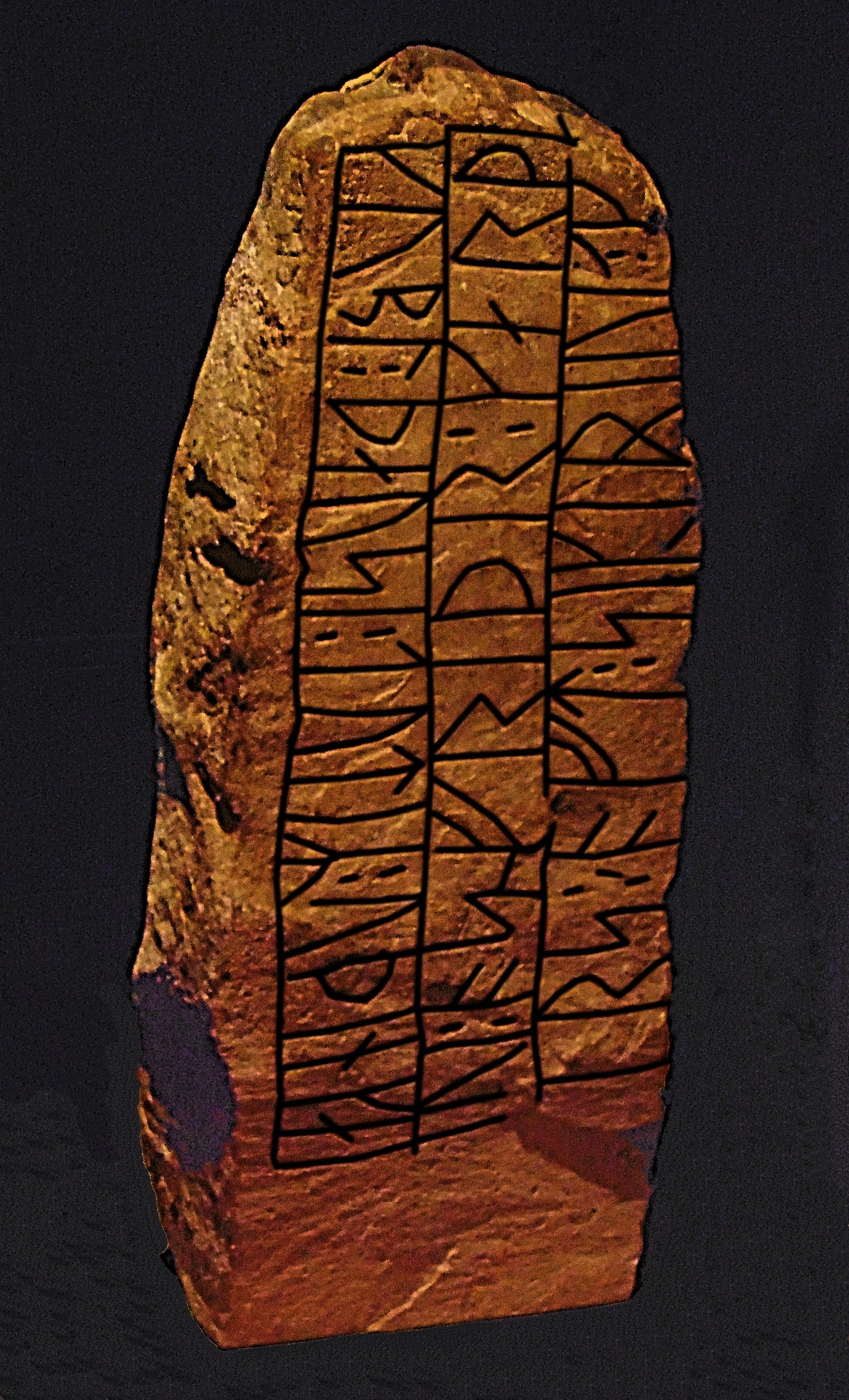 Runes — and writing, for that matter — is the human attempt at establishing immortality in a very mortal world. Look at the runic inscriptions we have from our ancestors: they talk about deeds, imbue power into weapons, mark the existence of a person, keep track of goods, or give us a magical formula of some sort.
Runes — and writing, for that matter — is the human attempt at establishing immortality in a very mortal world. Look at the runic inscriptions we have from our ancestors: they talk about deeds, imbue power into weapons, mark the existence of a person, keep track of goods, or give us a magical formula of some sort.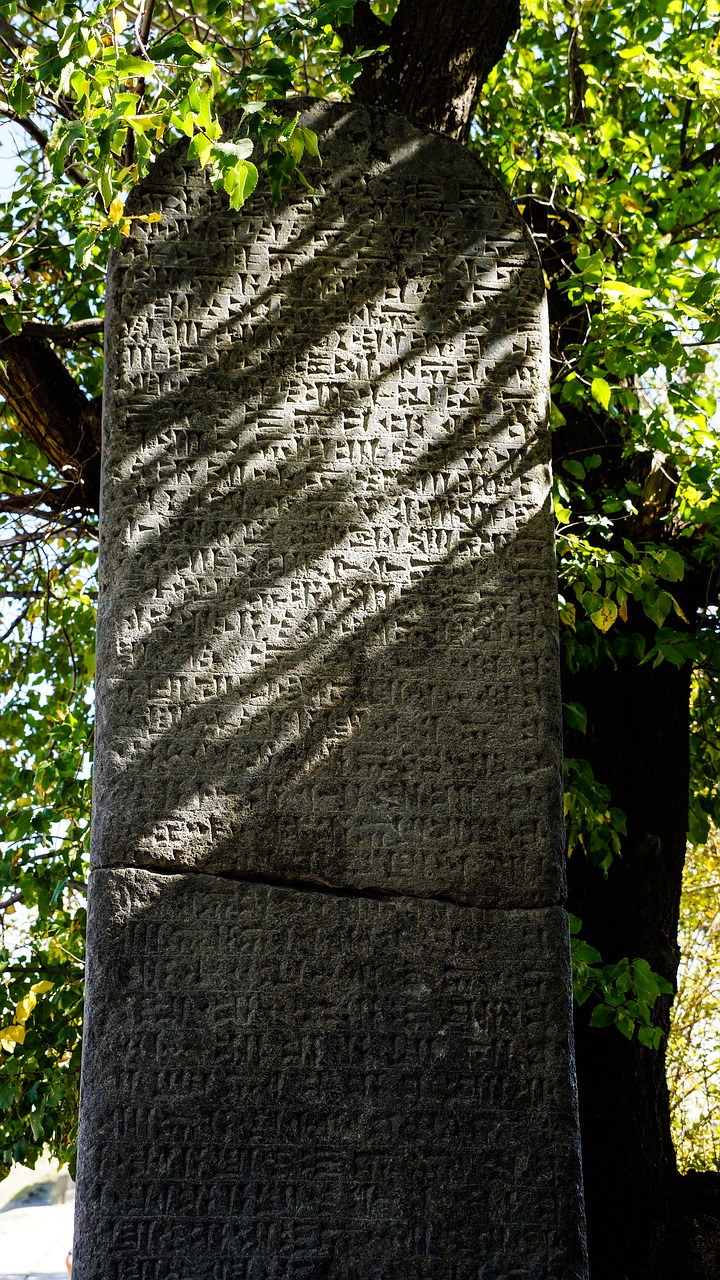 forego that avoidance. Writing, itself, is magical. Think about it. We can convey our thoughts, stories, feelings, and beliefs to people we have never met. To people whom we will never meet. This power is something we take for granted now, but writing has really only been around for a little over 5000 years. The
forego that avoidance. Writing, itself, is magical. Think about it. We can convey our thoughts, stories, feelings, and beliefs to people we have never met. To people whom we will never meet. This power is something we take for granted now, but writing has really only been around for a little over 5000 years. The 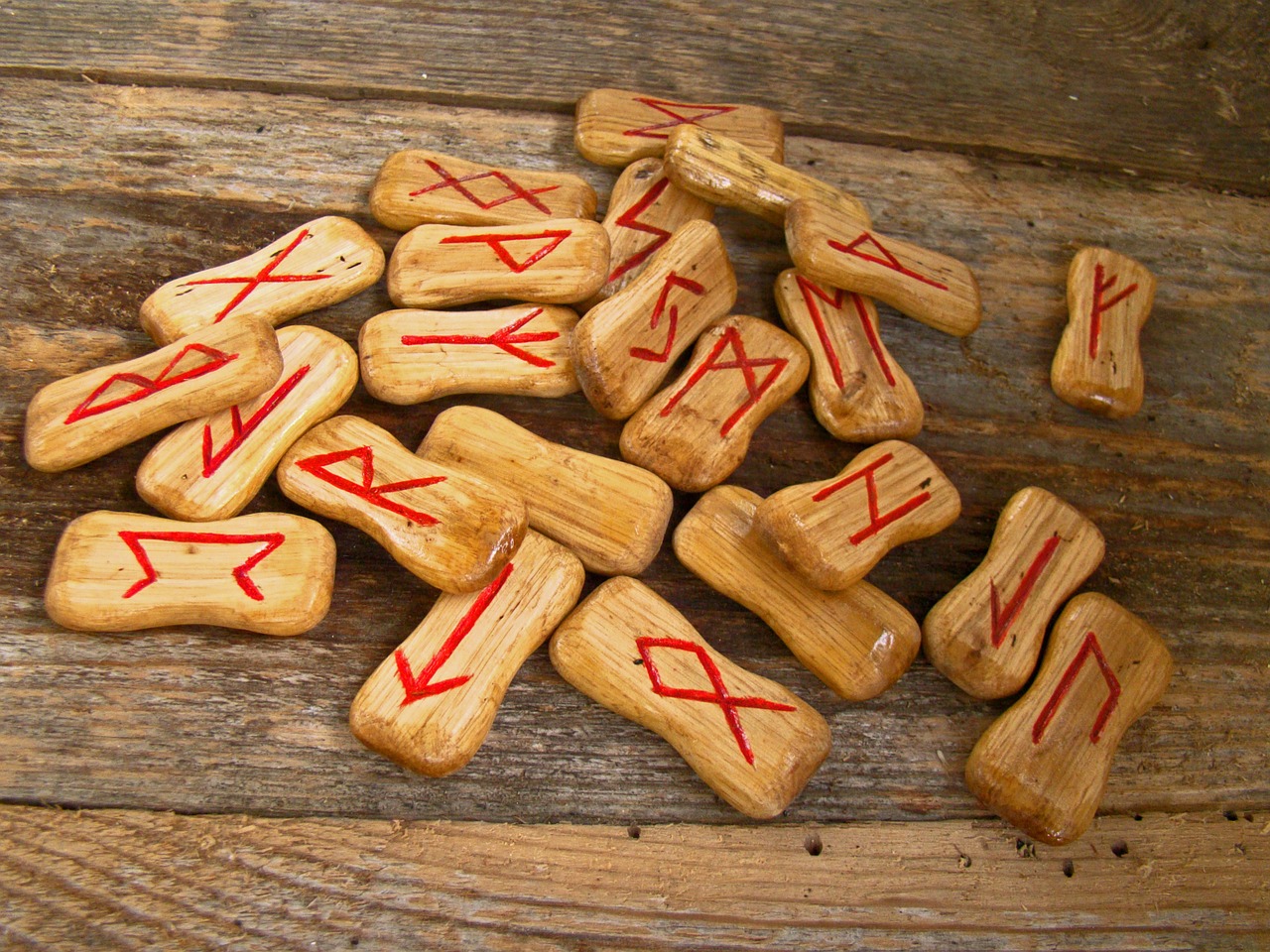
 If you’ve read
If you’ve read 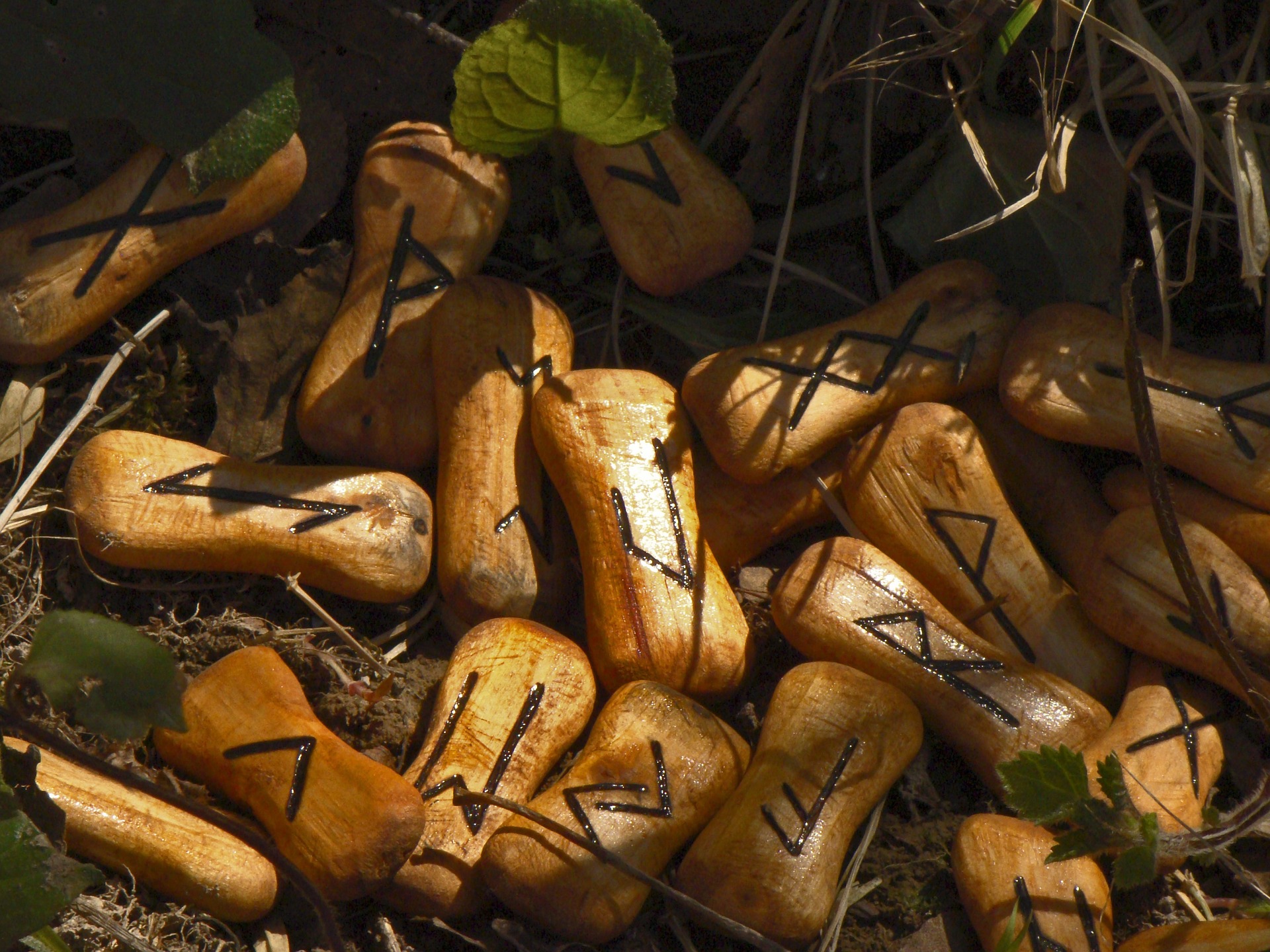 first edition somewhere, assuming it didn’t get lost in moving. Whether or not you think Blum’s book is a bunch of crap, you have to admit that it was and still is quite popular. I did some pretty successful runecasts with it, despite its faults.
first edition somewhere, assuming it didn’t get lost in moving. Whether or not you think Blum’s book is a bunch of crap, you have to admit that it was and still is quite popular. I did some pretty successful runecasts with it, despite its faults.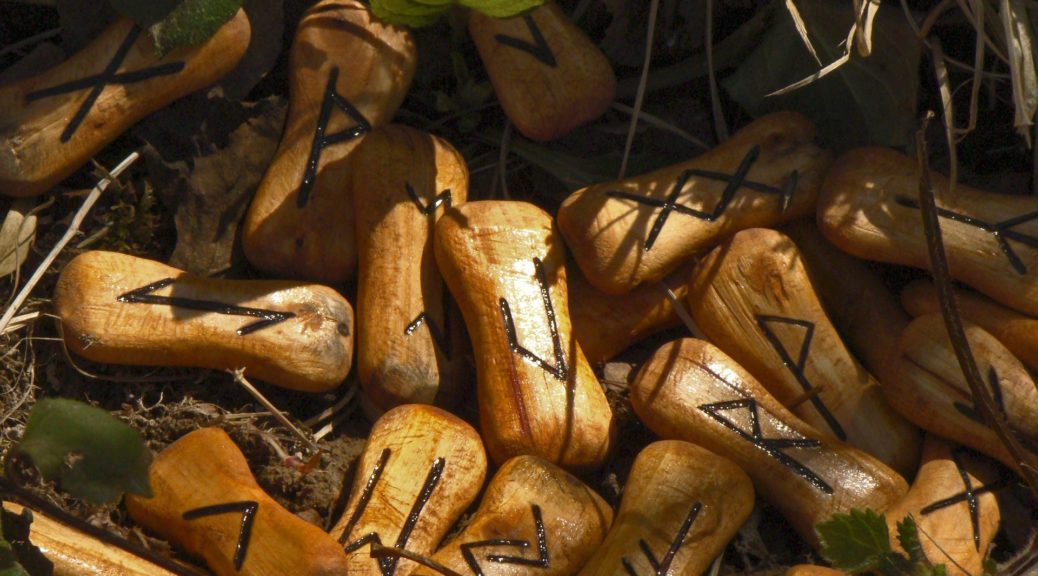


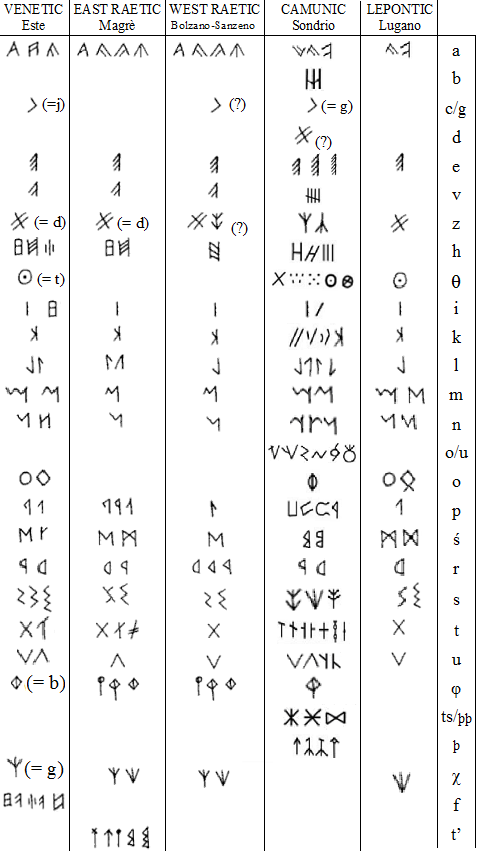 If we look at the runic alphabet from archaeology, we can get a sense for where the runes came from. Even so, it’s sort of a mystery how the runes came into being. We know that the oldest runes, the Elder Futhark, were written as early as 150 AD or CE (Common Era). But whence they came is as interesting as the story in the Havamal. Runes may have be derived from what are called the Old Italic Alphabets, which includes the
If we look at the runic alphabet from archaeology, we can get a sense for where the runes came from. Even so, it’s sort of a mystery how the runes came into being. We know that the oldest runes, the Elder Futhark, were written as early as 150 AD or CE (Common Era). But whence they came is as interesting as the story in the Havamal. Runes may have be derived from what are called the Old Italic Alphabets, which includes the 






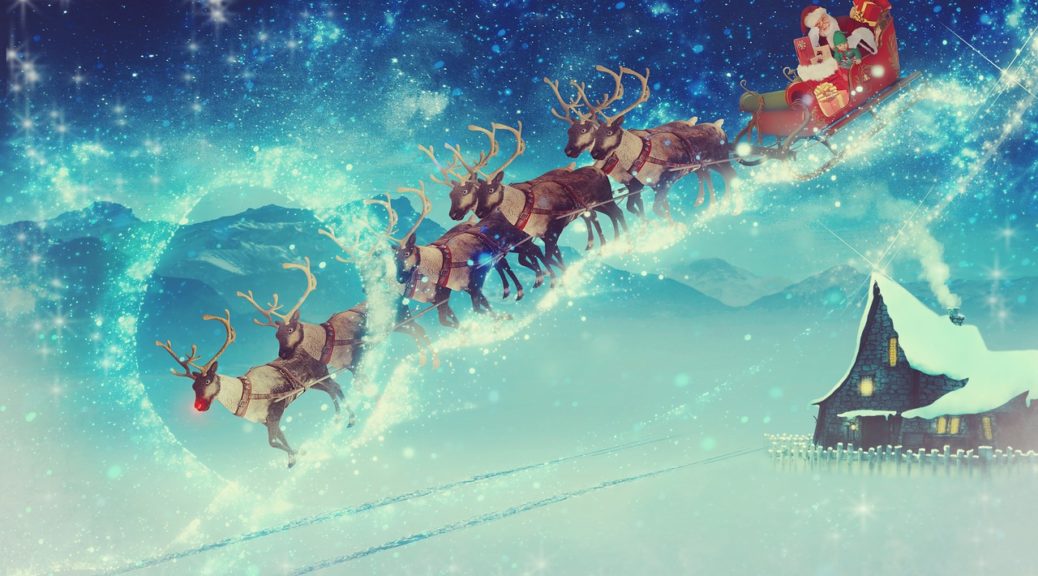

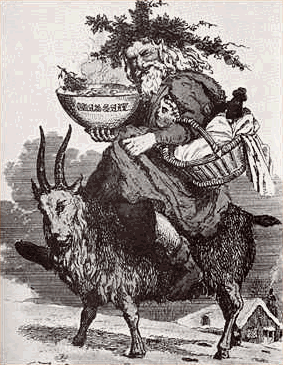

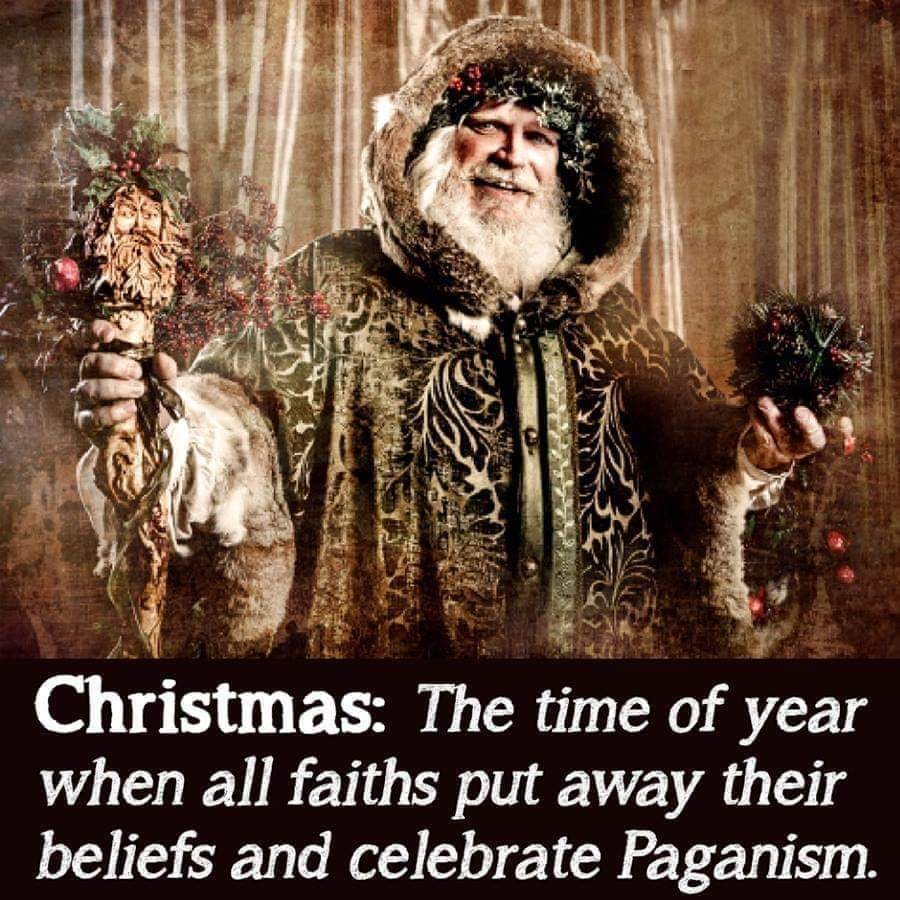
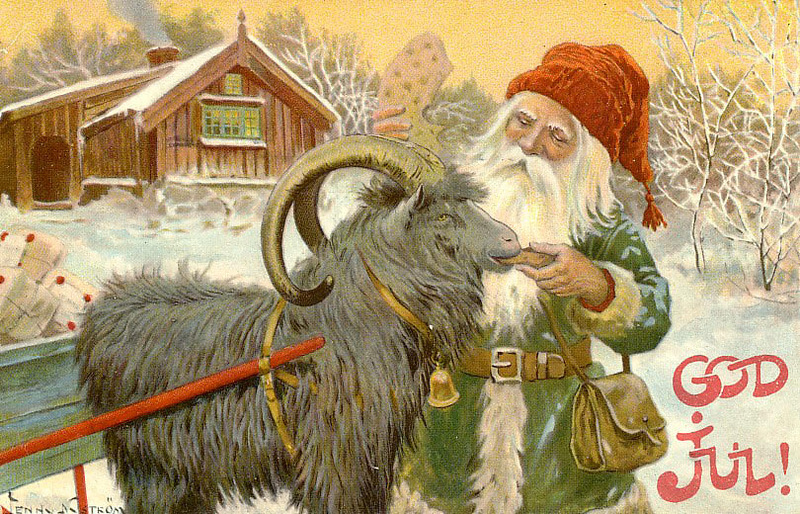

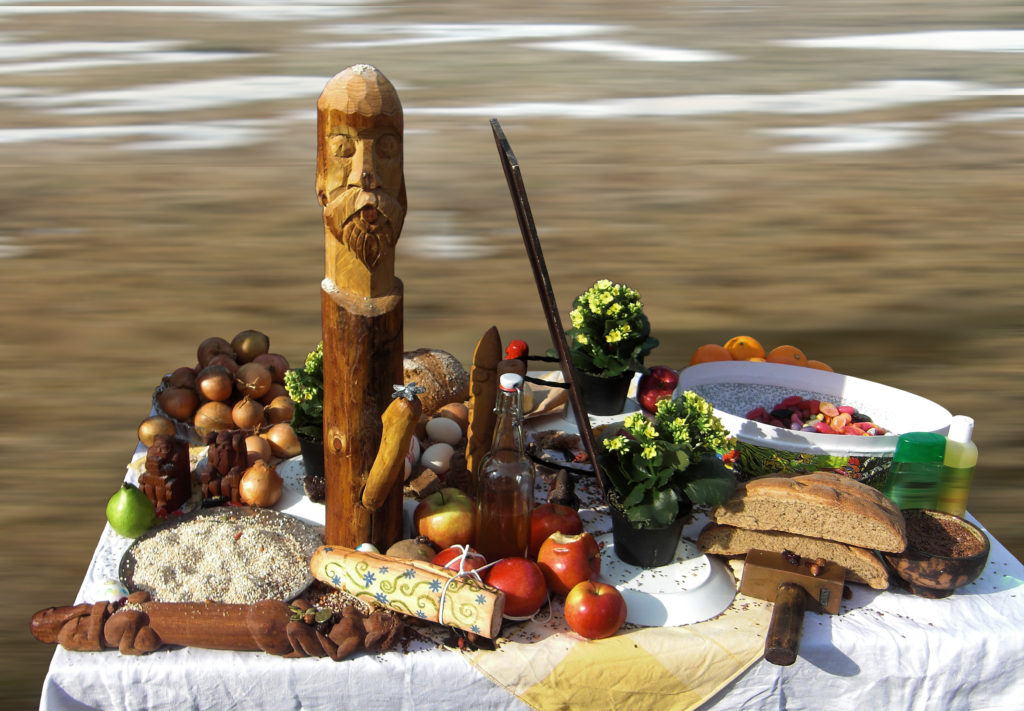



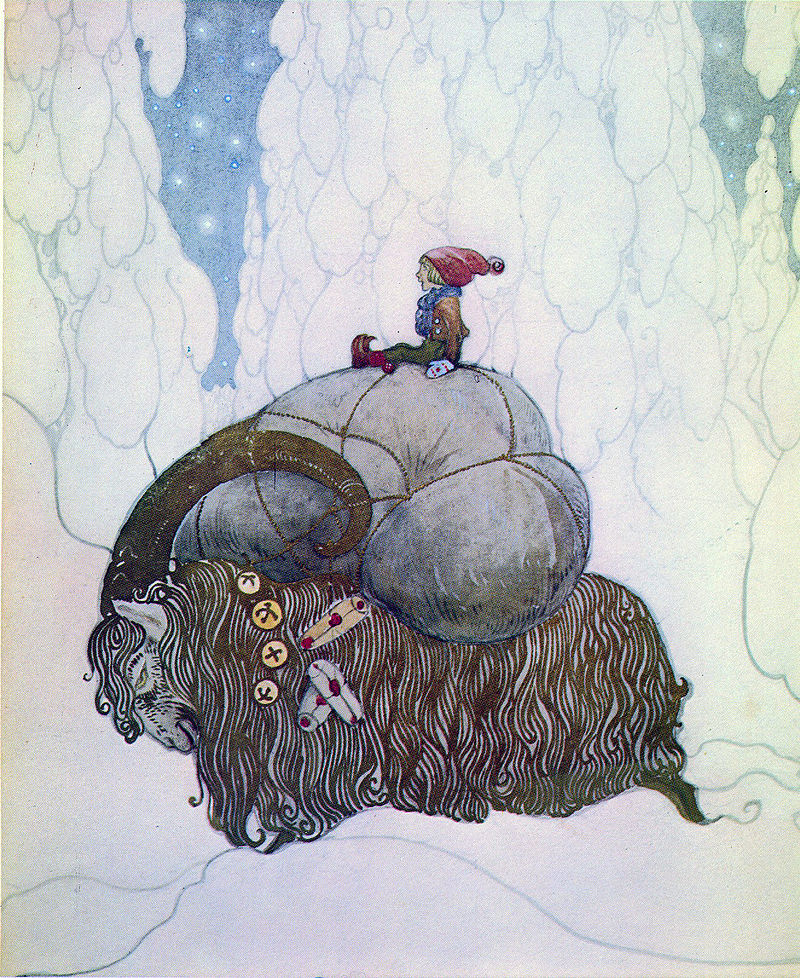
 Hunting season has drawn to a close, which means
Hunting season has drawn to a close, which means  Prayer and offerings are part of our beliefs, and yet, it can look strange to those outside of our religion. It’s not that I’m ashamed of my beliefs, it’s just that my husband doesn’t understand or believe in them. Looking at it from an atheist perspective, I get it. It looks like a bunch of woo-woo to him and it can look like I’ve lost my marbles. (Maybe I have?) But I do get it. Not everyone is going to look on our religion positively, which is why I’m presenting a more secular Yule to my family and not pushing my religion on those who aren’t interested in it.
Prayer and offerings are part of our beliefs, and yet, it can look strange to those outside of our religion. It’s not that I’m ashamed of my beliefs, it’s just that my husband doesn’t understand or believe in them. Looking at it from an atheist perspective, I get it. It looks like a bunch of woo-woo to him and it can look like I’ve lost my marbles. (Maybe I have?) But I do get it. Not everyone is going to look on our religion positively, which is why I’m presenting a more secular Yule to my family and not pushing my religion on those who aren’t interested in it. and desserts to prepare for the upcoming Yule. I’ll also be offering my female ancestors gifts on my altar. When cooking, I often go into meditation and focus on my ancestors. Sometimes, I’ll hear the ones who were closest to me in my mind. It is a day to honor them, so I do things that they would appreciate. Usually involves holiday preparations.
and desserts to prepare for the upcoming Yule. I’ll also be offering my female ancestors gifts on my altar. When cooking, I often go into meditation and focus on my ancestors. Sometimes, I’ll hear the ones who were closest to me in my mind. It is a day to honor them, so I do things that they would appreciate. Usually involves holiday preparations. This is a big day for me. I will designate a Yule log to burn in my woodstove. If I can find good twine, I may make it prettier with pine boughs and pine cones. I will put together a venison roast for dinner and we will crack open a mead to celebrate. I may try my hand at making a yule log cake. In the late evening, I will hold a blot outside for the gods. I will also leave gifts to Sunna, Mani, Baldr, Loki, Tyr, and Skadi on my altar. I may gather the ashes from the Yule log later to smudge the corners of the house for protection. I will read the runes for the Solstice to get a feel as to what is to come for the new year.
This is a big day for me. I will designate a Yule log to burn in my woodstove. If I can find good twine, I may make it prettier with pine boughs and pine cones. I will put together a venison roast for dinner and we will crack open a mead to celebrate. I may try my hand at making a yule log cake. In the late evening, I will hold a blot outside for the gods. I will also leave gifts to Sunna, Mani, Baldr, Loki, Tyr, and Skadi on my altar. I may gather the ashes from the Yule log later to smudge the corners of the house for protection. I will read the runes for the Solstice to get a feel as to what is to come for the new year.
 freezer, so we’ll have a traditional Dickens type of dinner.
freezer, so we’ll have a traditional Dickens type of dinner.